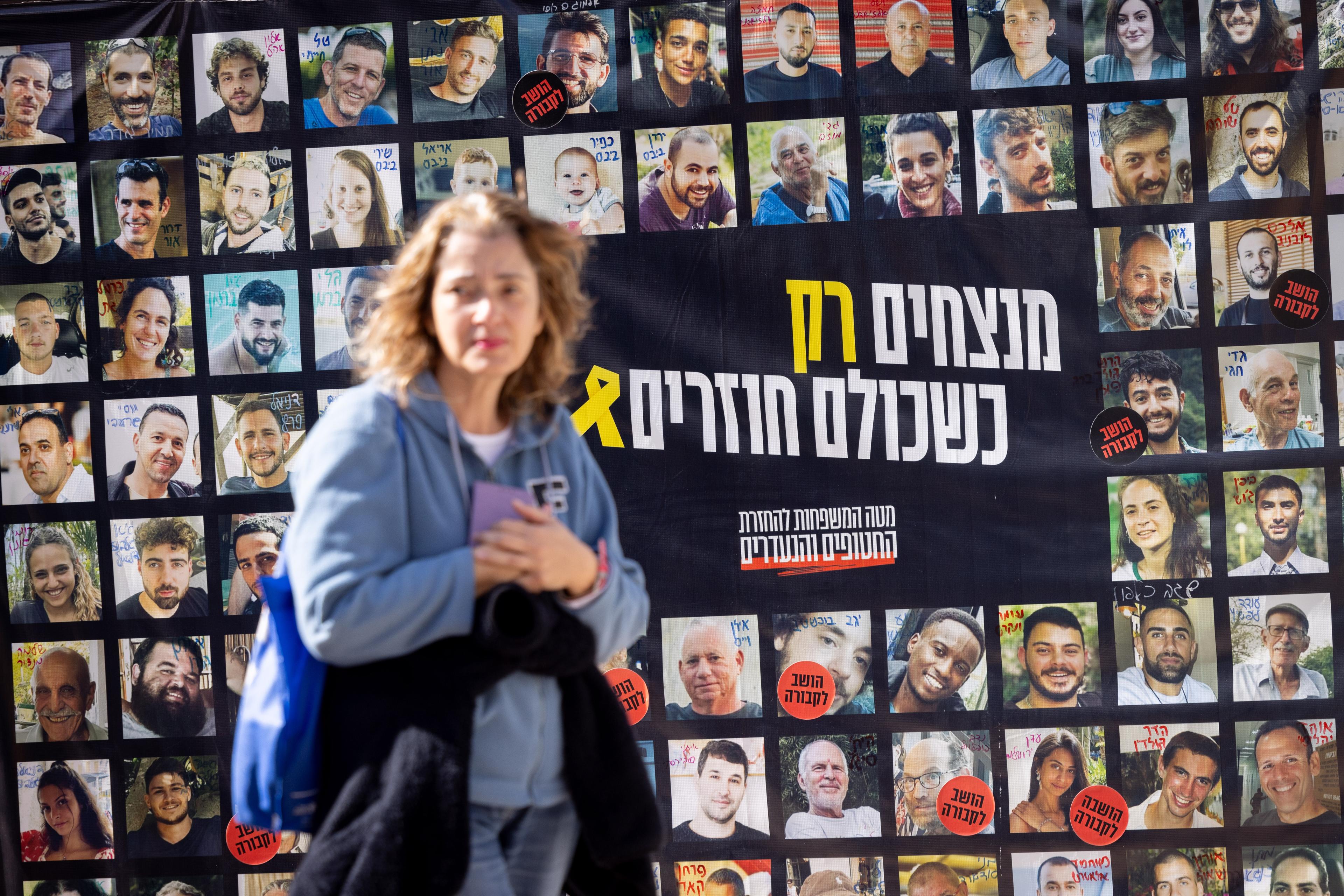Please Follow These, For Their Sake
Hamas Hostages: Guide to Supporting Released Captives | Israeli Government Recommendations
With three of the hostages set to be released today, the Welfare Ministry has released recommendations for the general public and those close to the hostages to help them readjust after their ordeal.

The Welfare Ministry posted a list of guidelines today (Sunday) regarding how the public and those close to hostages being released should act towards them and about them, stressing the need for compassion and respecting privacy.
They are released in full below:
We have longed greatly for the return of all the hostages, and we hope they will all return soon. The process of returning for those who come back is expected to be long and complex, requiring great attention, containment, and sensitivity. The long captivity and the severe, unprecedented trauma they experienced in captivity are complex and exceptional in their severity. The experience of captivity is characterized by a complete denial of control and independence. Therefore, each of us has a responsibility.
We wish to help with this and therefore recommend several simple rules:
Respect, compassion, and non-judgment: The returnees have gone through an unimaginable traumatic experience, and they should be allowed to express all the feelings and emotions they choose. Any reaction is normal to the abnormal experience they went through, and it's important to give them the appropriate space with full compassion, patience, and acceptance.
Protecting the privacy of the returnees: Although many of us know and have many details about them, we must remember that the returnees are private individuals who did not choose publicity and are not necessarily interested in exposure. The experience they went through is first and foremost their experience and their story. It is their right to choose what they want to tell and to whom, at a time and place that suits them. The choice to share or not share what they went through is theirs alone. Therefore, it is very important to avoid exposing pictures, stories, and personal details without their explicit prior consent.
Social networks: We must act responsibly and respectfully towards the needs and feelings of the returnees and avoid trying to force them to be exposed. We must allow the returnees to return to a safe and supportive environment that allows them to make their voices heard while preserving their dignity and privacy.
Physical expressions of affection: Undoubtedly, the great concern for the returnees awakens an immediate desire to hug them. However, it's important to restore their sense of control and autonomy over their bodies as well. Some may experience touch as invasive, while others may experience it as an expression of warmth and support. Therefore, we must act sensitively and allow each returnee to choose, including regarding physical expressions of affection.
How can we help? It's only natural that during these days, each of us feels a desire and need to help and take a meaningful part in welcoming the returnees. Based on the principles outlined above, here are several practical suggestions to remember:
Despite curiosity and desire to help, make sure to give the returnees and their families full space and privacy.
Act responsibly regarding the spread of information and rumors, whether they are based in fact or not.
Make sure to maintain the dignity of the returnees when writing comments in various media. Support, containment, compassion, and lack of judgment from us as a society are critical in the return process of each returnee.
Respect the personal space of the returnees. While great concern may bring with it a desire to hug, remember that each returnee has the right to choose regarding their body.
If you are part of the community or close circles to a returnee, check how you can help. For example, by preparing a hot meal, grocery shopping, helping with house organization, transportation, and more.
The Privacy Protection Authority also added these guidelines for the public:
We must respect the privacy of the hostages and avoid, as much as possible, violating their personal space and disclosing or spreading personal information about them without their consent, especially when dealing with people returning from a prolonged and very complex period in captivity.
Our desire to embrace our brothers and sisters and know what they went through and how they are doing is completely natural, but it's important to remember that the hostages have the right to decide for themselves whether to tell their story, to whom to tell it, and when to do so.
Respecting the private and personal space of the hostages is the need of the hour and a necessary step toward their rehabilitation. Activities such as photographing hostages in hospital corridors, spreading videos of their moments of reunion with relatives, exposing details of their intimate conversations with others, or publishing information regarding their personal privacy, which are done without the consent of the hostages or their families, may constitute prohibited invasion of privacy under the law, and all parties - private and public - should refrain from doing so.